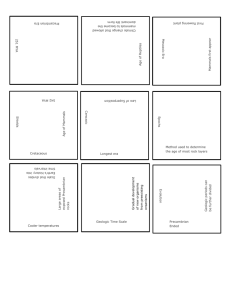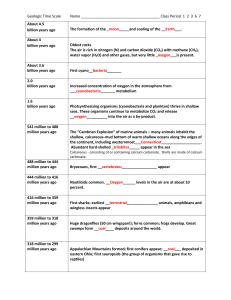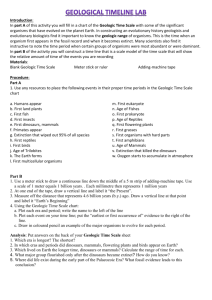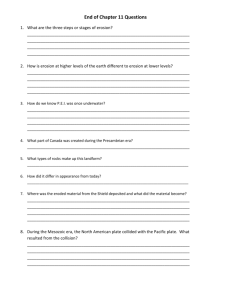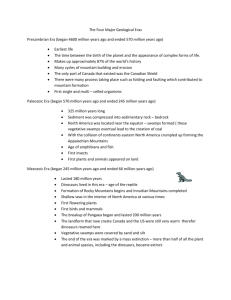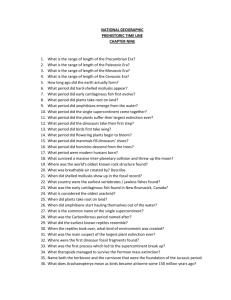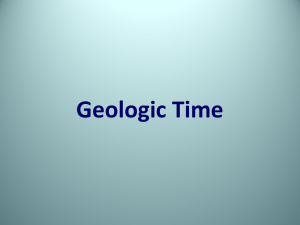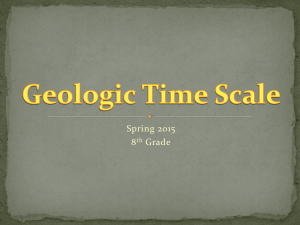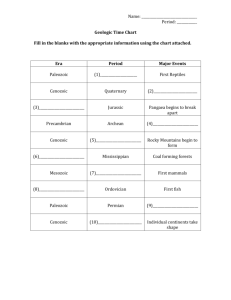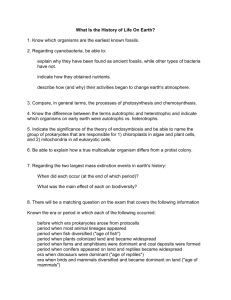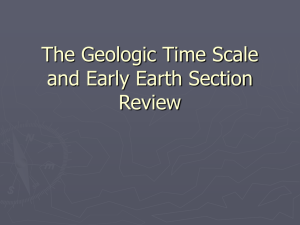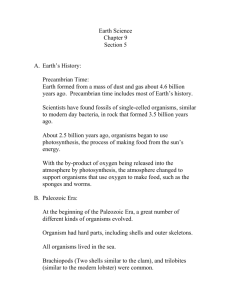Chapter 9 Test Review - Mrs. Dawson`s Classroom
advertisement
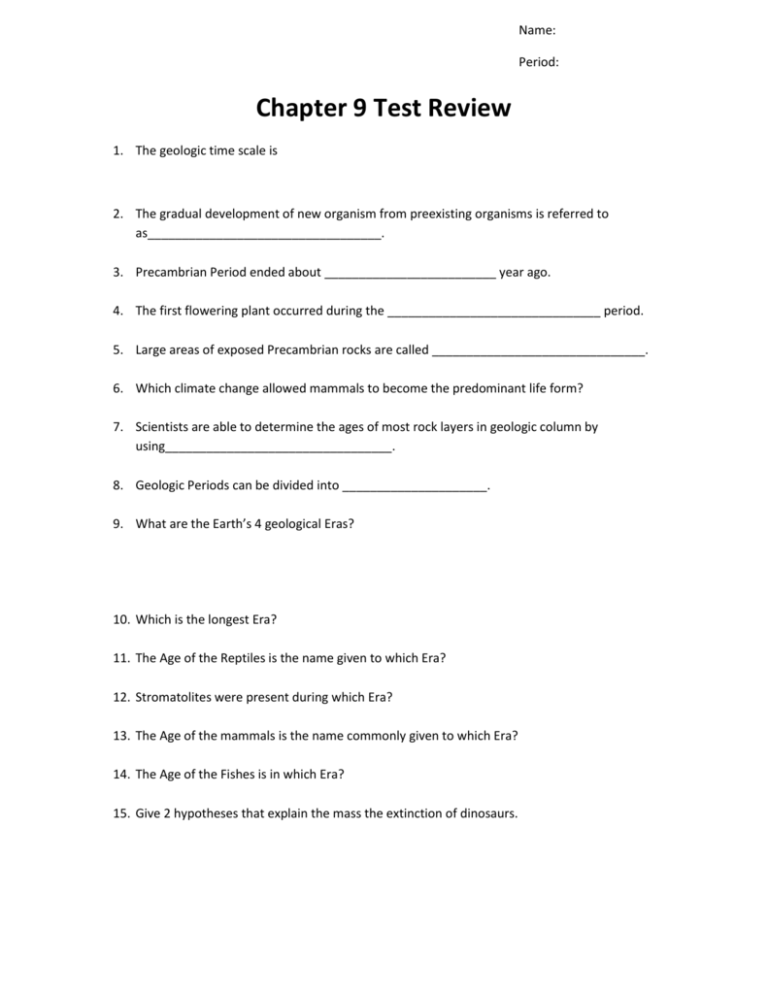
Name: Period: Chapter 9 Test Review 1. The geologic time scale is 2. The gradual development of new organism from preexisting organisms is referred to as__________________________________. 3. Precambrian Period ended about _________________________ year ago. 4. The first flowering plant occurred during the _______________________________ period. 5. Large areas of exposed Precambrian rocks are called _______________________________. 6. Which climate change allowed mammals to become the predominant life form? 7. Scientists are able to determine the ages of most rock layers in geologic column by using_________________________________. 8. Geologic Periods can be divided into _____________________. 9. What are the Earth’s 4 geological Eras? 10. Which is the longest Era? 11. The Age of the Reptiles is the name given to which Era? 12. Stromatolites were present during which Era? 13. The Age of the mammals is the name commonly given to which Era? 14. The Age of the Fishes is in which Era? 15. Give 2 hypotheses that explain the mass the extinction of dinosaurs. Use the Time Scale to answer the questions below: Period Million years ago Quaternary 0.0115 Tertiary 1.8 Cretaceous 146 Jurassic 200 Triassic 251 Permian 299 Carboniferous Devonian 318 416 Silurian Ordovician Cambrian 444 542 542 16. Which period did humans first appear? 17. Which period did amphibians first appear? 18. What period did modern birds first appear? 19. When were dinosaurs the dominant life form on Earth? 20. How many years ago did mammals first appear? 21. Which Era were dinosaurs present? Characteristics from geologic and fossil evidence The last glacial period ends; complex human societies develop Humans appear, age of mammals begins, first primates appear Plants and modern birds appear; mass extinction marks the end of the Era Dinosaurs are the dominant life form; primitive birds and flying reptiles appear Dinosaurs appear; ammonites are common and mammals appear Pangaea comes together; mass extinctions mark end of era Reptiles appear Age of fishes begins, amphibians appear Land plants and animals appear Modern oxygen rich state Shelled marine invertebrates appear, first vertebrates appear
